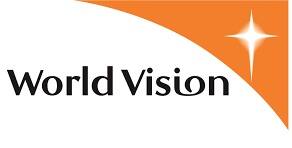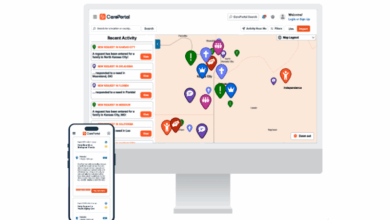Will your taxes fund Hamas through humanitarian aid?
The conviction of a World Vision head who funneled $50 million to Hamas is just one example of humanitarian aid gone wrong.
As the West continues to raise concern for the humanitarian situation in the Gaza Strip, one expert warns that funds could easily be funneled to Hamas through non-governmental organizations.
“At least $1 billion is channeled every year into Gaza under the label of ‘humanitarian aid,’ mainly through governments, U.N. agencies and a network of NGOs,’ Professor Gerald Steinberg explained to Jewish News Syndicate.
Steinberg is the founder and president of NGO Monitor, a Jerusalem-based organization.
“All of their officials who work in or visit Gaza were aware of the theft of materials to pay the Hamas terror army, to build kilometers of concrete-reinforced tunnels and to manufacture thousands of rockets—but they chose to remain silent. They all share responsibility for enabling the October 7 massacres,” said Steinberg.
One case in point is World Vision, a U.S.-based Christian aid organization that raises money through sponsors at Christian concerts across the United States.
“The case of World Vision stands out because many of the details are available following the arrest, trial and conviction of their Gaza manager, Mohammed El-Halabi,” Steinberg said.
 In 2022, Halabi was convicted and given a 12-year sentence for transferring $50 million of World Vision funds to Hamas.
In 2022, Halabi was convicted and given a 12-year sentence for transferring $50 million of World Vision funds to Hamas.
Hamas recruited Halabi in 2004 to infiltrate World Vision. From the time World Vision hired him in 2005, he regularly met with Hamas operatives, who were especially interested in acquiring tools for digging tunnels. Halabi established and promoted humanitarian projects and fictitious agricultural associations that acted as cover for the illicit financial transfers.
The main method used to divert aid money to Hamas was putting out fictitious tenders for World Vision-sponsored projects in the Gaza Strip, an Israeli investigation revealed. The “winning” company would be made aware that 60% of the project’s budget was to be designated for Hamas.
Halabi visited tunnels on at least two occasions and gave a Hamas operative $20,000 to repair tunnels damaged by flooding.
Some of the money went to pay the salaries of Hamas terrorists and, in some cases, senior Hamas terrorists took large sums of money for their personal use.
“After Halabi was arrested in 2016, World Vision sent two officials who asked to speak to me, including the manager of their West Bank and Gaza projects. She told me that she visited Gaza periodically to check on the activities, and the farmers showed her the fields and produce,” Steinberg told JNS.
“I asked whether she mentioned concrete tunnels that were probably underneath the fields—she simply shook her head. It was clear that she understood the question. This characterized the entire aid industry’s policy of silent cooperation with Hamas,” he added.
In the U.S., Sen. Chuck Grassley (R-Iowa) has been pressing World Vision to explain exactly what happened to $491 million it received from the U.S. Agency for International Development (USAID) in 2022.
“It is paramount that U.S. dollars do not, in any way, shape or form, fund or encourage terrorism. Through my investigations into World Vision and work to hold our government agencies accountable, my goal is to improve transparency and make sure every cent of taxpayer money is used as intended and not for illegal activity,” the senator said in a statement to JNS in August.
Because of Halabi’s trial, much is known about World Vision and its connection to terrorism. But World Vision isn’t the only organization that has raised Israeli concerns.
In October 2021, then-Defense Minister Benny Gantz blacklisted six Palestinian non-governmental organizations as terrorist groups linked to the Popular Front for the Liberation of Palestine.
The most prominent of the six NGOs are Al-Haq, which spearheads legal campaigns and Boycott, Divestment and Sanctions activities against Israel, and Addameer, which advocates for Palestinian security prisoners. Both are based in Ramallah.
The other four designated NGOs are Defense for Children-International Palestine, the Union of Palestinian Women’s Committees, the Union of Agricultural Work Committees and the Bisan Research and Advocacy Center. Several of these organizations receive funding from European governments.
Asked about his biggest concerns moving forward, Steinberg said, “Two issues: The continuation of diverting NGO ‘aid’ funding to Hamas terror, and the central role of NGOs and U.N. officials in demonizing Israeli counterterror actions through ‘war crimes’ and ‘collective punishment’ labels.”






